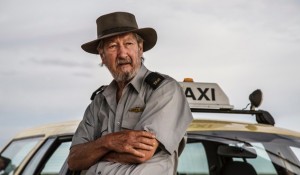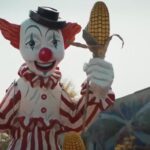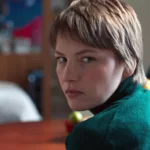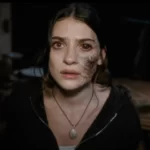The 5th Annual AACTA Awards have come and gone, celebrating the best that the Australian Film Industry has to offer. TOM’s Brendan Dousi was lucky enough to sit down with Best Actor Winner and all-round terrific human being Michael Caton a few days before the ceremony and talk about his fantastic new film Last Cab to Darwin, the amazing experiences he had filming it, his AACTA nomination and his impeccable taste in film. In the film plays Rex, a Broken Hill cab driver who, when told he doesn’t have long to live, sets out on an epic journey to Darwin in a bid to die on his own terms. Along the way he discovers that before you can end your life you have to live it, and to live it you have to share it.
TOM: So, how did you become attached to Last Cab to Darwin?
MICHAEL CATON: What happened was, about four years ago, I was approached by Jeremy Sims, our director, who I worked with on Chances, and there was a reading at a film festival and Jeremy asked me to read for Rex. We had a lot of mates up there to give us a hand; Suzie Porter, Siggy Thornton, Rhys Muldoon and Peter Phelps. We read the play to all of about a hundred people and it sort of went really really well. We had the audience in tears and unfortunately, by the end, I was too. Which was a bit embarrassing at the time. I had disappeared into the material.
TOM: What happened after that initial reading that led you into getting involved with the film?
MICHAEL CATON: Well, those are the real business parts. Trying to get the money. So, that’s what took the time. I think it took us about three years to get the money and of course you gotta have private investment and then Screen Australia will come in and give you some money. Film NSW gave us a bit, same as South Australia and the Northern Territory government came in and lent us these big four-wheel drives and we duly made the movie.
TOM: That must be a good thing about a movie being set across a few different states and territories, you get funding from different government bodies.
MICHAEL CATON: <laughs> Yes, indeedy. Yes, indeedy. We had the rare luxury of being mostly able to film in sequence. Because we were actually on the road, the trip became almost a character in itself. It just had an effect on you. From the flies of William Creek to Lake Eyre to Oodnadatta, which was an experience. I think there’s about one hundred and forty people in the town and about one hundred and twenty of them are in the movie. It was just extraordinary. A wonderful experience.
TOM: It sounds amazing. We take it you didn’t need to audition for the role? Was the play reading practically your audition?
MICHAEL CATON: Yes, it was and I’m a dreadful auditionee. Give me the role and I’m full of confidence but don’t ask me to go and read because I hate it. I hate it. I think it cost me a bit of work because I just don’t like doing it, which is a bad thing for an Actor to be like. <laughs> But, I am.
TOM: Did the script change much in the transition from play to film?
MICHAEL CATON: There’s whole new characters in the film that were never in the play. Tilly, played by Mark Coles Smith, in the play had one line. He was totally reimagined for the screen. The original play had music and songs and all sorts of things and I mean, how do you create a cab on stage? You have a chair and a steering wheel and you move it around. We had the luxury of real cabs.
TOM: That’s a good change. What about this role attracted you? What made you go ‘Yes, I want to play this character”?
MICHAEL CATON: Well, I mean, you just read the script and it was such a lovely script. It was so emotionally involving. Let’s face it, at my age, I think I was about 68 when we did that reading. At my age in the middle of film like that? It’s pretty rare. So, I grabbed it with both hands.
TOM: You talked a bit about the actual process of filming, what would you say was your favourite scene to film or your favourite location to film in?
MICHAEL CATON: That’s a hard one. Because each of the places were really so different. I don’t think I can put my finger on… No, I think some of the stuff in Darwin, actually. Because, Emma Hamilton who plays Julie the backpacker, we just really gelled. Then with Mark Coles Smith as well, he did just a fabulous job on that film. Some of the scenes with him were fabulous too. When you think back to the ‘long grass’ scene in Darwin, that was a pretty powerful scene to do. I wouldn’t say enjoyable, but at the same time a really powerful scene. From that point of view, that is one of the most memorable scenes to me.
TOM: What do you do to prepare for a scene like that?
MICHAEL CATON: You keep to yourself as much as possible in a role like that. It’s not like a comedy where you can just go away and forget about it. You really have to immerse yourself in it. Because we were doing that travelling, I had the wonderful idea of having a Motor Home rather than having to stop and go into a Motel every night. That was a really stupid idea. Everyone had running water and the Motor Home was so small you had to walk outside to change your mind. It isolated you. In that regard, it sort of worked for the film. It wasn’t incredibly pleasant because Motor Homes are filled with really sharp corners. <laughs> But it sort of helped the cause, is the best I can say about it.
TOM: Did you find yourself trying to sneak showers in other people’s hotel rooms?
MICHAEL CATON: Oh yeah, in the end I did. In the Motor Home if you drop the soap you couldn’t pick it up. <laughs> I’d go in in the morning and have a shower in someone else’s room. A lot of the time, in terms of Oodnadatta and what have you, a lot of the crew were sleeping in swags under the stars. It was cold. June in the outback in the desert. It gets bloody cold. I didn’t volunteer for that one.
TOM: The film has a phenomenal supporting cast. What was it like working with other heavy-hitters like John Howard or Jacki Weaver?
MICHAEL CATON: All that mob, the mob in Broken Hill and behind the bar, they were just fabulous. To have people like that doing small roles for you. That first scene with Jacki is a force of nature, before she comes across the road to my place, what an entrance for a character. Then you have Mark Coles Smith, he went out about ten days earlier and picked up the local lingo and made friends with the kids. As far as they were concerned he was Tilly. When he turns up in Williams Creek and he’s lying on that bench, wow. That’s a bit like the entrance of Brad Pitt in Thelma and Louise, isn’t it? The character is just so different from Mark, he just metamorphosed into that character. Then Emma Hamilton comes in at Daly Waters. She went there a week earlier and worked behind the bar for a week to get her barmaid skills up to speed. She was a breath of fresh air. We just gelled. We because such great friends. I sent her an e-mail, hoping she’s going to stay with us when she comes for that AACTA awards. My wife always put on a bit of a floor show in her QANTAS pyjamas. <laughs>
TOM: That’s amazing. It sounds like you had a great cast to work off of.
MICHAEL CATON: Yeah. Oh, and then in Darwin Jacki arrives. We probably wouldn’t have got the film made without Jacki. In terms of finance and international finance. We lucked it with the weather, too. If we had been a week earlier in the shoot we wouldn’t have been able to get through the Oodnadatta Track. We just got through, as it is. There we were on time and on budget. If we had gone a week earlier, we would have been in more strife.
TOM: What was it like working under Jeremy Sims as a director?
MICHAEL CATON: Wonderful. He’s an actor. I don’t think it would have been half the performance without Jeremy. You didn’t need to carry a script on set, Jeremy knew every line. “What’s the line, Jeremy? Ok, thanks mate.” He really got me to pull back on the performance and make it as minimal as I could. It all helped the cause because you’ve got this quiet, internal man in the midst of all these extravagant characters. That worked a treat for me. I’d work with Jeremy again tomorrow.
TOM: How did you feel getting nominated for the Best Actor AACTA?
MICHAEL CATON: It’s lovely. It really is. Usually what I do is comedy and you never get nominated for a comedy.<laughs> It’s just the way of the world.
TOM: Have you written your acceptance speech yet?
MICHAEL CATON: Well, I’ve just been reading it. It’s 30 seconds. If I do get it there’s a lot of people to thank in 30 seconds. You have to make sure it’s concise.
TOM: Well, looks like my time is up. Just one last question I like to ask at the end of every interview; What’s one of your favourite movies of all time?
MICHAEL CATON: I think Dr. Strangelove. I just remember so acutely when I first saw it years ago in Brisbane in the 60s. I figure another film that really affected me was King & Country with Tom Courtenay and Dirk Bogarde. I just reeled at that in the cinema, it was just an amazing film.
TOM: Well, you have excellent taste in film!
MICHAEL CATON: Well, they were just extranordinary films.
TOM: Thanks so much for talking to me today, Michael. It was a treat.
MICHAEL CATON: Same to you. Good luck to you and have a great and New Year!
Last Cab to Darwin is available now on DVD and Blu-Ray via Icon Films.




